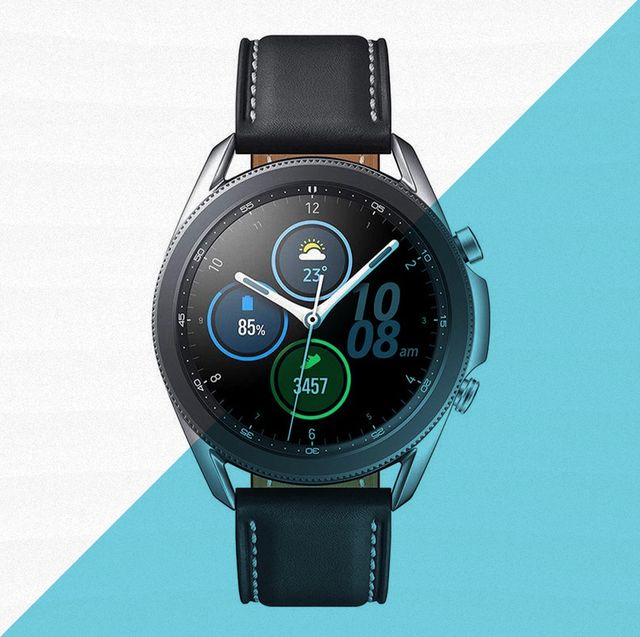
Staff, Courtesy of Samsung
Fitness tracking has come a long way since the days of clip-on pedometers. While they were the best options we had back in the day, their results were often inaccurate—not to mention extremely limited.
Thankfully, technology has evolved considerably, and fitness trackers can now deliver information on a more diverse array of wellness metrics. Steps can still be counted, but many trackers now also monitor statistics like heart rate, workout duration, oxygen levels, and heart rhythm. Some have GPS for tracking location during runs, hikes, and bike rides, while others track sleep and recovery. Many fitness devices are even capable of tracking menstrual cycles and other health data, as well.
The data they collect are meant to make your life, habits, and health better, usually in combination with exercise. As a refresher, the American Heart Association (AHA) recommends 150 minutes of moderate-intensity aerobic exercise or 75 minutes of vigorous activity per week. Fitness trackers, with their ability to gauge effort based on heart rate, make recording your workouts a snap.
“There is no greater motivation than seeing higher oxygen consumption, lower heart rate, greater endurance, and improved performance, all metrics that can be obtained from fitness trackers,” says Lance C. LaMotte, MD, FACC, interventional cardiologist and owner of TITLE Boxing Club of Baton Rouge.
Regardless of your fitness goals, the extensive metrics fitness trackers report can help you achieve them, and can work as overall wellness boosters.
Best Fitness Trackers
What to Consider
The right fitness tracker for you is going to depend on what your goals are, your aesthetic preferences, and your budget. Keep the following in mind and you’ll be well on your way to finding the right device for you.
Tracking Goals
Some fitness apps offer more in terms of calorie burn assessments and workouts via apps, while others delve into sleep, heart rate, and stress analysis. Others have excellent tracking features for health and wellness metrics. Think about what your goals are before making a purchase.
Size and Design
Many fitness trackers look like, well, fitness trackers. However, others more closely resemble traditional watches or jewelry. We have included several broad and slim options, as well.
Special Features
Some of the fitness trackers we selected allow you to text and make calls, some will send heart reports to doctors, and others can analyze sleep patterns.
How We Selected
To select these devices, I relied on my own experience wearing fitness trackers, and drew from previous Popular Mechanics testing of fitness trackers and smart watches. I also considered professional reviews from trusted experts, and feedback from consumer reviews. After reviewing, researching, and using top options, I selected the best models based on how well their features met the expectations for the intended user, their price, ease of use, and overall performance.
This content is created and maintained by a third party, and imported onto this page to help users provide their email addresses. You may be able to find more information about this and similar content at piano.io

Comments are closed.